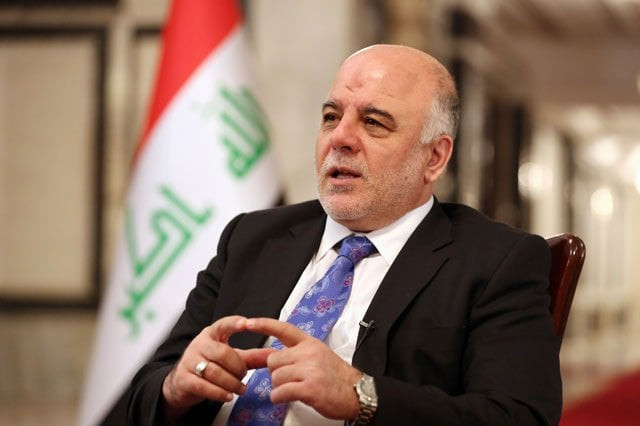Powerful Iraq Shia cleric says PM's position at stake unless he reforms
Abadi promised political and economic reforms last summer after mass street protests

PHOTO: AFP
Abadi promised political and economic reforms last summer after mass street protests but quickly ran into legal challenges and systemic resistance to change. This month he vowed to appoint technocrats to replace ministers appointed on the basis of political affiliations but that promise also remains unfulfilled.
"Today the (position of the) prime minister is at stake, especially after the people have revolted," Sadr, whose Al-Ahrar bloc holds 34 seats in parliament and three cabinet posts, told supporters in a mass show of strength on Tahrir Square.
Chanting anti-American slogans to energise the huge crowd, Sadr accused Abadi of failing to capitalise on the support offered by Iraq's highest Shia religious authority, Grand Ayatollah Ali al-Sistani, who endorsed the reforms but appears to have grown frustrated with their lack of progress.
"Despite the voice of Marjaiya (Sistani) that supported the government reforms and after we authorised the prime minister to start reforming, he slackened," Sadr said from a podium, flanked by armed bodyguards wearing camouflagued uniforms.
Iraqi political analyst Fadhil Abu Ragheef, said Friday's protest rally, which he attended himself, was about Sadr reasserting his influence by positioning himself as a torch-bearer of reform.
"Lately the star of the Sadrist trend has somewhat faded," Abu Ragheef said. "The first (point of this protest) is returning the Sadrist bloc again to the forefront of the political gallery."
Iraq Reconstruction: Pakistan offers assistance, manpower
Sadr, whose Mehdi Army militia fought US troops at the height of Iraq's sectarian bloodshed in 2006-07, threatened to breach the heavily fortified "Green Zone" compound that houses government buildings and foreign embassies including that of the United States.
But Abu Ragheef said this was just a rhetorical device.
"He does not mean physically breaching as much as politically (breaching). He wants to convey a sense that the reform revolution is coming your way through the gates of the Green Zone, but not physical gates."



















COMMENTS
Comments are moderated and generally will be posted if they are on-topic and not abusive.
For more information, please see our Comments FAQ